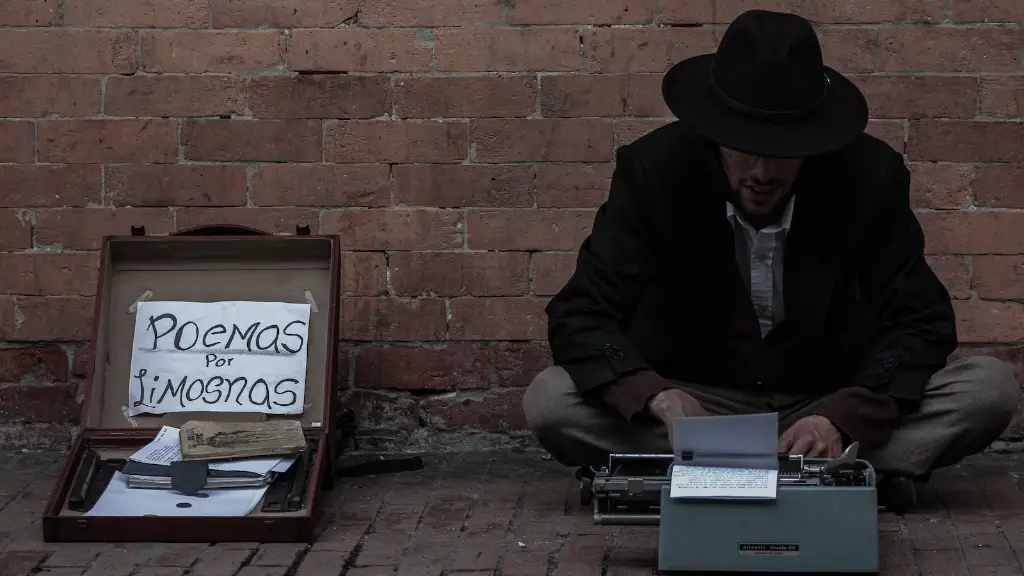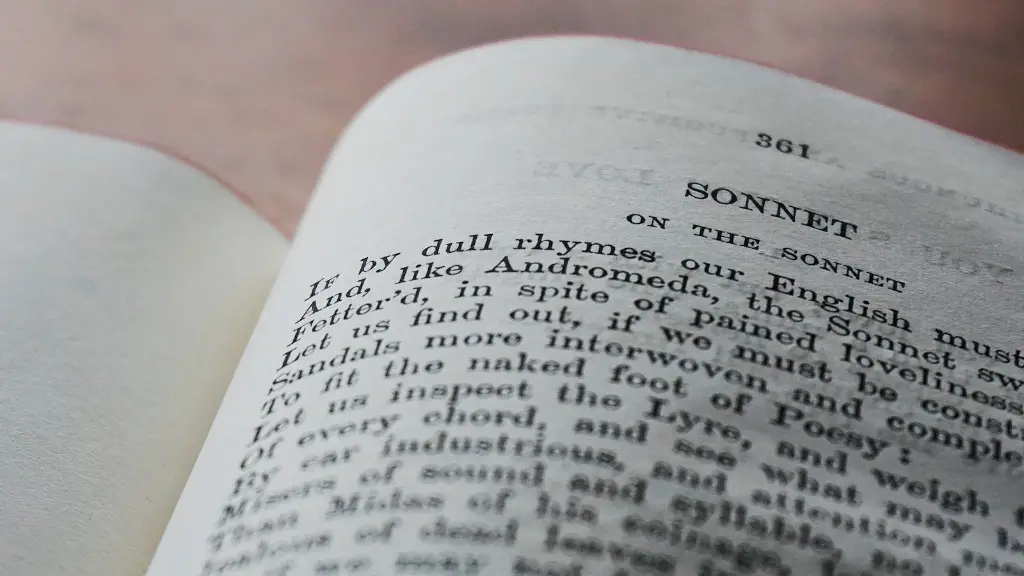As a child, I always found comfort and solace in the daily prayers and scriptures I was taught. Growing up in my Catholic religion, I was surrounded by numerous verses that sought to instill religious faith and moral direction. But it wasn’t until I found poetry, some years later, that I gain appreciation for the power of words and their ability to move me.
When I began to write poetry myself, I noticed the similarities between my childhood prayers and the linguistic form and composition of the poems I wrote. In both texts, language is used to convey meaning and evoke emotions, although the purpose of childhood prayers is different. Whereas a prayer, for instance, may be designed to instill faith and moral guidance, a poem might aim to capture a certain experience within the constraints of form and sound. The two methods of expression employ diverse strategies, yet sharing a common purpose to provoke thinking in a memorable way. As I progressed further in my journey as a poet, I gradually discovered that there was much more to creating poetry than crafting words with musicological allusions.
As I began to understand the essence of poetry and its convention, I started to draw parallels between my childhood background and the inherent textual similarities. In prayer and scripture, language was designed to be just as captivating as that of a poem, for practitioners and believers are meant to find enjoyment, upliftment and consolation within its verses. These closely knit words elicit emotion and relay experiences and messages in a most alluring way. As I became increasingly familiar with poems and religious literature, I began to view the fusion of both approaches as endearing and unique.
In my early years as a poet, I was fortunate to find such verses enjoyable and engaging. I soon began using the techniques I had learnt to craft sermons and essays on a variety of topics, displaying a previously understated aptitude for writing that had been nurtured as a child through scripture. This newfound knowledge granted me the ability to express many of my thoughts, feelings and experiences that had previously been difficult to verbalise.
From my experiences with writing, I soon discovered a newfound confidence in my usage of words, often receiving praise from and promoting respect from my peers. However, despite the positive experiences that had resulted from my newfound passion for poetry, I eventually realised that this confidence had its limits.
I faced a few stumbling blocks throughout my journey as a poet, but managed to get myself back on my feet by revisiting my roots. Through understanding the backdrop of my formative years and the lessons learnt from early childhood prayer, I was able to move past many obstacles, gaining comfort and strength through the verses of scripture.
I discovered that despite my creative passion, I should never forget the original source of my strength, the prayers and scriptures of my childhood. This has ultimately enabled me to gain greater appreciation for the power of words, instilling resilience in times of difficulty, whilst maintaining a compassionate attitude towards myself and others along the way.
Harnessing Creativity
When pursuing creative endeavours, I often find myself constantly striving for perfection whilst taking risks. Although these lofty ambitions can pay off handsomely, they can also lead to times of discouragement and frustration. To prevent myself from succumbing to such anxiousness and stress, I use the techniques and morals instilled through my childhood prayer.
The verses of my prayers focus less on punishing me for my misdemeanours and instead aim to encourage me to harness my creativity, push myself towards my dreams, and most importantly, stay resilient in times of difficulty through the power of faith.
Analysing the messages of these prayers reminds me that no matter what, I should never be restricted when it comes to expression and should always be open to learning and expanding my creativity. On the flipside, however, my childhood prayer also warns me of the dangers of overconfidence, damning hubris and the consequence that comes with pursuing grand ambition without the necessary dedication and hard work.
Overall, the lessons that taught throughout religious scripture seek to remind me of the true importance of creativity and confidence— namely to enjoy the journey, wherever it may lead.
Creating a Spiritual connection
Having grown up in my faith and explored the concept of prayer through writing, I became increasingly interested in building a deeper connection between the spiritual aspects of prayer and the emotional strength that manifests when I write.
Unfortunately, I found limited information on such a profound subject, so I chose to explore the source material by examining the prayers from my childhood. It was through the analysis of these texts that I was able to gain insight on how my spirituality had aided my creativity for many years.
In the heart of most scriptures lie values that seek not to restrain creativity or quell ambition, but to instead encourage its prosperity and express it honestly. Such perspectives taught me that I must always remain true to myself, no matter the situation.
The scripture has aided me in understanding that at the end of the day, all I can do is express who I am honestly, through the most creative means possible, allowing my spiritual faith to constantly flow within my poetry.
Remaining Optimistic
The message of prayer has always been to use my creativity to stay in a constant state of optimism and remind myself of the importance of faith. Through these early teachings, I learnt that although success cannot be achieved by praying, inner peace can be attained by maintaining a positive mindset and a trusting attitude towards life.
Within such a mindset lies security, permission to follow dreams and explore new avenues whilst staying fearless to take reasonable risks and handle any outcome with greater composure.
Overall, my understanding of prayer and its morals has taught and given me the courage to passionate pursue my creative goals. Through this understanding, I have gained much more appreciation for my previous upbringing and reassurance in utilising the power of faith to enjoy and capture life’s experiences without fear of the unpredictable.
Harnessing my power
I am now more in-tune with the power of prayer and its ability to instill resilience and comfort when I feel myself diminishing in confidence or stressed about my writing. Embodying the values of prayer has lead to increased resilience and the capacity to rise above any challenge that leaves me feeling phased.
Overall, my prayers have enabled me to manage thoughts of anxiety and harassment, filling me with a sense of purpose and resilience that I believe will last me until the day I die. With that said, I can finally accept my childhood prayers not as a symbol of restriction, but as an instinct of faith that has enabled me to re-discover my creative ambition and amplify my lyrical spirit to a new and greater level.
Allowing myself to make mistakes
As my passion for creation has flowered and my spiritual understanding has matured, I have learnt valuable lessons that have re-shaped my approach to writing. I have learned, for instance, that it is better to acknowledge the mistakes we make than over-criticise ourselves for knowing our own limits.
As someone that boasts a high level of faith, I am now more open to human sufferance and holding myself accountable for misjudgements or lapses in confidence. Such a mindset has led to me resolving my inner issues with much more honesty and regularity, leading to greater understanding of myself and my limitations.
I believe that this state of mind is perhaps the most valuable lesson my religious scriptures have instilled in me— that mistakes can lead to mastery. I often take break from writing to ground myself in my faith and remind myself that the true joy of writing lies in my willingness to give myself permission to make mistakes and learn valuable lessons along the way.
Taking Full Ownership of my words
Now, more than ever, I feel like I have taken full ownership of my words, ensuring that I am the captain and maker of my own destiny. Although my religious background instills a level of caution and accountability, I have learnt that this awareness has enabled me to use my creativity to explore my dreams with a greater level of fearlessness.
Although I may never be able to write texts that rival the beauty and power of scripture or prayer – I am now more confident in utilising the same linguistic power to promote personal empowerment and self-expression for generations to come.
Although I can never truly know the full impact of my writing, I remain comforted in believing that my efforts are making a difference, all the while instilling confidence in my craft and fuelling my ambition and creativity to ever greater heights.





